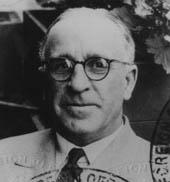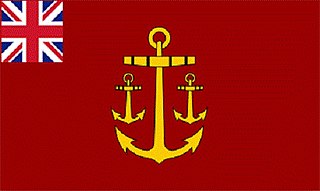
Charles Talbot, 1st Duke of Shrewsbury, KG, PC was an English politician who was part of the Immortal Seven group that invited William III, Prince of Orange to depose James II of England as monarch during the Glorious Revolution. He was appointed to several minor roles before the revolution, but came to prominence as a member of William's government. Born to Roman Catholic parents, he remained in that faith until 1679 when—during the time of the Popish Plot and following the advice of the divine John Tillotson—he converted to the Church of England. Shrewsbury took his seat in the House of Lords in 1680 and three years later was appointed Gentleman-Extraordinary of the Bedchamber, suggesting he was in favour at the court of Charles II.

Sir Robert Dudley was an English explorer and cartographer. In 1594, he led an expedition to the West Indies, of which he wrote an account. The illegitimate son of Robert Dudley, 1st Earl of Leicester, he inherited the bulk of the Earl's estate in accordance with his father's will, including Kenilworth Castle. In 1603–1605, he tried unsuccessfully to establish his legitimacy in court. After that he left England forever, finding a new existence in the service of the Grand Dukes of Tuscany. There, he worked as an engineer and shipbuilder, and designed and published Dell'Arcano del Mare (1645-1646), the first maritime atlas to cover the whole world. He was also a skilled navigator and mathematician. In Italy, he styled himself "Earl of Warwick and Leicester", as well as "Duke of Northumberland", a title recognized by the Emperor Ferdinand II.

The title of Viscount Lisle has been created six times in the Peerage of England. The first creation, on 30 October 1451, was for John Talbot, 1st Baron Lisle. Upon the death of his son Thomas at the Battle of Nibley Green in 1470, the viscountcy became extinct and the barony abeyant.
Dudd (Dud) Dudley (1600–1684) was an English metallurgist, who fought on the Royalist side in the English Civil War as a soldier, military engineer, and supplier of munitions. He was one of the first Englishmen to smelt iron ore using coke.

Amblecote is an urban village in the Metropolitan Borough of Dudley in the West Midlands, England. It lies immediately north of the historic town of Stourbridge, extending about one and a half miles from it, and is on the southwestern edge of the West Midlands conurbation. Historically, Amblecote was in the parish of Oldswinford, but unlike the rest of the parish it was in Staffordshire, and as such was administered separately.

Major Francis Edward Foley CMG was a British Secret Intelligence Service officer. As a passport control officer for the British embassy in Berlin, Foley "bent the rules" and helped thousands of Jewish families escape from Nazi Germany after Kristallnacht and before the outbreak of the Second World War. He is officially recognised as a British Hero of the Holocaust.

Foster, Rastrick and Company was one of the pioneering steam locomotive manufacturing companies of England. It was based in Stourbridge, Worcestershire, now West Midlands. James Foster, an ironmaster, and John Urpeth Rastrick, an engineer, became partners in 1816, forming the company in 1819. Rastrick was one of the judges at the Rainhill Trials in 1829. The company was dissolved on 20 June 1831.

Witley Court, Great Witley, Worcestershire, England is a ruined Italianate mansion. Built for the Foleys in the seventeenth century on the site of a former manor house, it was enormously expanded in the early nineteenth century by the architect John Nash. Subsequently, sold to the Earls of Dudley, a second massive reconstruction by the architect Samuel Daukes took place in the mid nineteenth century, creating one of the great pleasure palaces of Victorian and Edwardian England.

Wordsley is a village south of Kingswinford and north of Stourbridge in the West Midlands, England. It is part of the Metropolitan Borough of Dudley and falls into the Stourbridge (DY8) postcode and address area, being just north of the River Stour. Wordsley is part of the Dudley South Parliamentary constituency and backs onto open countryside with an extensive array of luxury property.

The Stourbridge Canal is a canal in the West Midlands of England. It links the Staffordshire and Worcestershire Canal with the Dudley Canal, and hence, via the Birmingham Canal Navigations, to Birmingham and the Black Country.

The slitting mill was a watermill for slitting bars of iron into rods. The rods then were passed to nailers who made the rods into nails, by giving them a point and head.

Thomas Foley (1617–1677) was an English ironmaster and politician who sat in the House of Commons at various times between 1659 and 1677.
Philip Foley was the youngest of the three surviving sons of the British ironmaster Thomas Foley. His father transferred all his ironworks in the Midlands to him in 1668 and 1669 for £60,000. He also settled an estate at Prestwood near Stourbridge on him on his marriage, to which Philip added the manor of Kinver.
The South Staffordshire line is a partly used and partly disused railway line that once connected Burton-upon-Trent to Lichfield in Staffordshire and then to the West Midlands towns of Walsall, Dudley and Stourbridge. However, Dudley and Stourbridge were already joined to the Oxford, Worcester and Wolverhampton Railway's (OW&WR) line just north of Dudley Station. It in essence, continued to Stourbridge. The sections from Burton-Upon-Trent to Lichfield City remains open as well as the section from Ryecroft Junction to Bescot. The track from Walsall to Lichfield City is now both a footpath and disused while the section from Walsall to Dudley is mothballed.
Sir Clement Clerke, 1st Baronet was an important English entrepreneur, whose greatest achievement was the application of the reverberatory furnace (cupola) to smelting lead and copper, and to remelting pig iron for foundry purposes.

Midlands West was a constituency of the European Parliament in the United Kingdom which existed from 1979 to 1999, prior to its adoption of proportional representation. It elected one Member of the European Parliament by the first-past-the-post electoral system.
The Dudley and Stourbridge Steam Tramways Company operated a steam tramway service between Dudley and Stourbridge between 1884 and 1899.
John Bradley & Co was a company established in 1800 by John Bradley at Stourbridge in the West Midlands area of England. The company developed into a large industrial concern with furnaces, ironworks and mines. Under James Foster, John Bradley's half brother, it was instrumental in bringing the first commercial steam locomotive into the Midlands area in 1829. The firm stayed under family control until the early years of the 20th century when first the mining (1913) and then the ironworks (1919) were sold off. Part of the business continued to trade under the name John Bradley & Co. (Stourbridge) Ltd until after the Second World War.


















